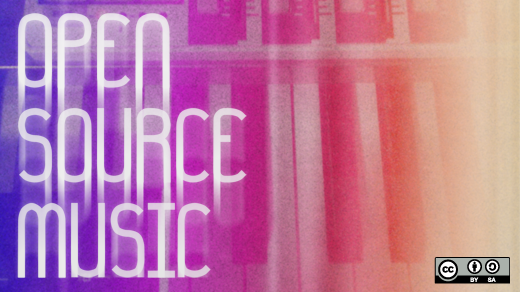We are now more than a decade into the technological revolution that turned the music industry upside down. Initially, it felt like there was so much possibility, that the internet might be the great democratizer, that it could empower artists to take more control over their careers, and ultimately allow them to see more of a percentage of income from their music. There have been some success stories, but it seems the vast majority of artists today are struggling even more, making less money yet paying more middlemen.
Recently musicians have begun to be more open about discussing their shrinking percentages in this music industry food chain. There's been articles in the past few months about major indie artists that are unable to pay for their own health insurance, bands frustrated with payments they receive via streaming services, and apparently now Cat Power is even facing bankruptcy. When artists are willing to publicly talk about money it means that things are definitely taking a turn for the worse.
People often like to talk about disruption when discussing the music industry but the initial disruption was the easy part, think of it like screaming "Fire!" in a crowded theater, it’s actually putting something together after that chaos that is the difficult and interesting work. Every few years we see a different solution touted as the answer. First it was mp3 downloads, then it was internet radio, and now that the cloud is here it’s streaming on demand. This sort of technological determinism is market driven and frankly isn’t necessarily what most artists need or even want.
Most music technology is generally listener facing, see services like Spotify and Pandora, as that’s where the true money is, and money is where the investment is. The goal is generally to scale while addressing listener behavior, not serving the artists who provide the music. Therefore a large amount of music tech has been built without actual viability for artists considered at all. There just isn’t much money in it so that element is often overlooked.
The majority of internet businesses revolve around a single core model aimed at solving a specific problem. Some current solutions like streaming and internet radio will only return real income with massive play counts, but not all art can or will scale. Other solutions provide a piece of the puzzle, but adding all of those pieces you get an unwieldy solution. A solution that asks artists to spread their presence across the internet and juggle various profile updates will not work in the long run for either artists or their fans that want easy to find and recently updated info in one place. No matter the approach, most of these solutions rely on proprietary technology at their core, meaning that no matter how much we chant "direct to fan" or "DIY" a musician has to plan on one or more partners, even if they’re signed to a label.
At CASH Music we’re building a free and open-source platform for musicians to use in promoting, distributing, and selling their music. We’re doing this as a nonprofit, but we feel that open-source and an open attitude is even more vital to the long-term sustainability of musicians. The platform will contain most tools artists need to interact with their fans: sales, social, streams, tour date management, email collection, etc. It will also integrate and cooperate with existing services like MailChimp or PayPal. So if there’s a service that you would prefer to use for a certain task and if it has an open API, it can be integrated and used with the CASH Music platform. To date we’ve released several distributed versions of the platform—meaning it lives on an artist’s own site—but we’re currently finalizing the pieces for a hosted version that’s coming very soon. The hosted version will allow artists with little to no technical knowledge the ability to use our tools.
We truly believe that there is no future for either side of this debate without cooperation. As Greg Kot summed up so devastatingly in a tweet during the last Future of Music Coalition Summit: "Getting feeling with this internet royalty rate debate of a desperate industry eating its own, fighting over shrinking pie," it’s a damaged industry. Ultimately it’s important to note that a healthy living for artists is vital to both a vibrant music culture and to the tech culture surrounding it. So in the end the question is less about technology, and more about the people working together around new innovations.
It's easy to get lost in a red herring debate about whether technology has been a good thing or a bad thing for musicians. You can make arguments on both sides of the coin, but the reality is that the people and the innovation matters more than any technology itself. We don’t need a solution—we need a viable marketplace of solutions that can truly work together to fit the needs of every artist. This means open APIs, open data, and open-source solutions to bridge the gaps where there isn’t enough money to drive closed businesses.
This kind of open music marketplace can drive innovation, serve artists, and force incumbents to always provide new value for musicians. Open source by its very nature enables and encourages community and cooperation. We believe that this community of developers and musicians working towards common goals, speaking the same language, and learning about one anothers' ecosystems is the best path for both artist sustainability and a healthy tech culture surrounding music.
Note: This article is part of a series supported in part by the National Endowment for the Arts.
Originally posted on FreeMusicArchive.org. Reposted under Creative Commons.




1 Comment